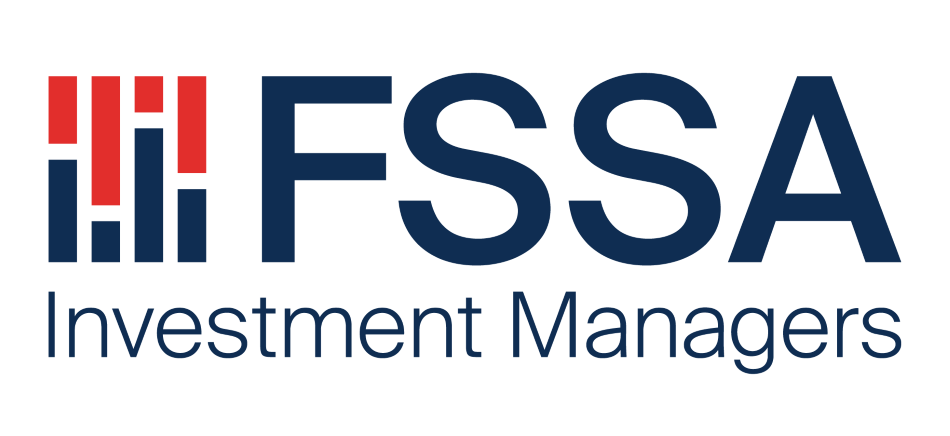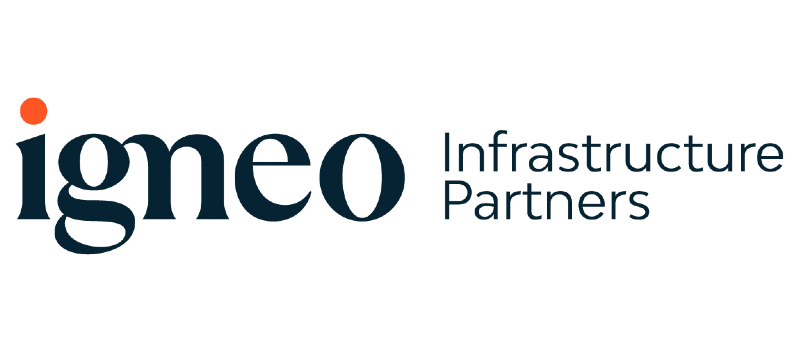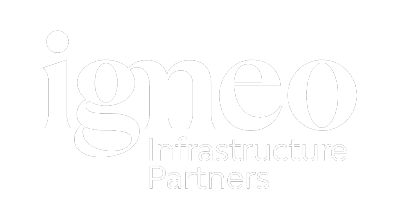Ihre Suche ergab mehr als 50 Treffer. Hier sind die 50 relevantesten Ergebnisse.
FSSA Investment Managers (FSSA) are specialists in Asia Pacific and Global Emerging Markets equity strategies. We operate as an autonomous investment team within First Sentier Investors with a team of dedicated investment professionals based in Hong Kong, Singapore and Edinburgh
End of Year Review
End of Year Review
End of Year Review
End of Year Review
End of Year Review
FSSA Investment Managers Asia Pacific equity strategies offer long term investment opportunities in some of the world's most dynamic markets.
Our Core Beliefs
We have written about the spate of Initial Public Offerings (IPOs) in India and our reasons for staying away from them, for the most part. This time, we want to talk about why new listings are important to keep the market vibrant and to keep the entrepreneurial spirit in the country alive.
FSSA Investment Managers Greater China equity strategies invest in quality companies in the rapidly developing Chinese market and Greater China region.
FSSA Investment Managers global emerging markets equity strategies invest in some of the world's most dynamic and diversified markets looking for growth sectors and individual companies with stable management and solid development opportunities.
FSSA Investment Managers India equity strategies investing in one of the worlds largest and most diverse economies, carefully seeking quality companies with long term growth.
As the saying goes, “There are two kinds of forecasters: those who don't know, and those who don't know they don't know.” Recently, we have seen hordes of the latter kind, garbed as analysts, Unicorn founders, freshly-minted CEOs and so-called “experts”, as they engage in modern-day snake oil salesmanship, which is what seems to pass for Fundamental Equity Research these days.
Land, Labour, Capital and Entrepreneurship. These are the well-known “Factors of Production” as defined by classical economists. The Entrepreneur (or Company) is the one that combines these factors to earn a profit.
Our investment philosophy is to back owners and managers with whom we feel strongly aligned. These owners typically have track records of treating all stakeholders fairly, in both good and bad times.
The pandemic has accelerated certain long-term shifts in consumer behaviour, such as using more online orders for everything from clothing to food. The latest battleground appears to be groceries, but the disrupter emerged from a not-so-new technology — WeChat groups.
We consider ESG risks to be factors that may place business value at risk. Companies at risk are identified using both external providers and our own internally driven research, which is based on a systematic and extensive company meeting program.
China made headlines for watering down coal reduction targets during COP261, but we think the criticism is unfair. The nation’s own targets set by President Xi Jinping last year — for peak emissions before 2030 and carbon neutrality by 2060 — are still ambitious and noteworthy considering China’s faster economic growth compared to developed countries.
50x P/E!1 70x P/E! 100x P/E! Valuations that were outrageous just a few years ago are commonly bandied about by most of the investment community these days. But, ask any respected business owner and they would shake their head in disbelief
As with global automotive manufacturers, several Indian automotive original equipment manufacturers (OEMs) including Maruti Suzuki, Mahindra & Mahindra (M&M), Tata Motors and Eicher Motors have recently announced that the shortage of semiconductor supply has impacted their production schedules. This has added to the persistent challenges faced by the industry over the last few years.
In almost every meeting that we have with management teams, we will ask about incentivisation. In our view, it is an important question and the answer can be highly revealing about an organisation’s culture and behaviour.
What are your thoughts on the increasing regulation risk of investing in China? Firstly, regulations are nothing new — it has always been a part of the investment equation. If we look at Hong Kong or Singapore for example, the government would introduce new regulations on the property market from time to time; and in China, the government has introduced a number of new regulations for banks and insurance companies over the years.
First Sentier Investors, ein führender internationaler Assetmanager, gibt die Berufung von Hendrik Neumann als Institutional Business Development Director bekannt.
In our last client update in February 2021, we discussed the reasons we resisted the temptation to switch into pure cyclicals and so-called “value” stocks1 — even though we had anticipated a sector rotation in the market (the TOPIX subsequently peaked in March 2021).
Allen besitzt mehr als 20 Jahre Erfahrung im globalen Asset Management. Seine Spezialisierung liegt dabei im Aufbau von Investmentbereichen sowie der Führung von von entsprechenden Teams.
First Sentier Investors, ein führender globaler Asset Manager, freut sich, die Ernennung von Jamie Downing zum neuen Head of Distribution EMEA bekannt zu geben. Damit setzt das Unternehmen den Ausbau seines globalen Vertriebsteams weiter fort.
We believe financial markets, critical to society’s ability to function, are under threat. For too long, it has been widely accepted that short-term performance, growth, risks and financial returns should be maximised at the expense of environmental and social outcomes.
Mutations, it would seem, are not unique to the virus. Starting with some housekeeping, we always end our letters seeking feedback from our regular readers.
First Sentier Investors (FSI), ein führender globaler Vermögensverwalter, gab heute das Ergebnis einer Überprüfung seiner bestehenden Anlagekapazitäten anhand seiner Strategie bekannt.
Leveraging our recent paper, ‘Reducing carbon intensity in portfolios: Better news than you think’, which analysed the investment impact of reducing carbon exposure versus the benchmark; we turn our attention to how we can reduce carbon risk in our Value strategies. This aligns with our commitment to reducing carbon exposure across our strategies.
There were a number of structural trends leading up to the Covid pandemic that were all very well understood. And the pandemic has given rise to some newer emerging trends. And what is central to the majority of these trends is the rapid advancement and continued adoption of technology which is driving societal change.
What if we could find investment opportunities based on how people say things, as much as what they say?
In September 2023, I met more than 30 global listed infrastructure companies and stakeholders from the UK, Europe and China. The following travel diary summarises my impressions and findings from these meetings.
Dialling down carbon intensity in portfolios could have less of an impact on risk and return than some might think, but the impact will vary depending on the sectors, styles and regions investors are weighted towards. Globally oriented investors can potentially reduce carbon intensity with a small addition of tracking error, but those wanting to address carbon intensity with a high exposure to Australian stocks might find it more difficult.
Head of Asian Fixed Income, Nigel Foo provides an outlook into 2025 for the strategy.
Since our last update, global markets have not been short of action and the manic behaviour characterising today’s markets has taken investors on another rollercoaster ride. While not quite comparable to the market movements seen during the dark days of March 2020, the recent correction — especially in China-related companies — has been notable. Yet, from a market perspective, a sense of normality is finally starting to emerge after the more speculative phases over the past 12-18 months.
In our last client update, written through the depths of Covid-despair, we observed that real life and the world of markets are seldom so intimately entwined. With markets swinging violently to the downside on a riptide of fear, it was clear even then that activity was being driven by short-term anxiety rather than a real evaluation of Asia’s longer-term value-accretion prospects.
Recently I attended the largest US utility conference, the 2024 Edison Electric Institute (EEI) Financial Conference, in Hollywood, Florida. I met with management teams from 26 regulated electric and gas utility companies.
Last quarter I visited infrastructure companies in Tokyo, Osaka and Nagoya. The trip included visits to ten corporate head offices and three site tours. This paper seeks to share some of the key findings from my meetings with Japanese passenger rail and utility companies.
The cascading impacts of climate change and society’s overexploitation of the land and sea is giving rise to unprecedented devastation of nature and biodiversity. In the last 50 years, there has been a devastating 69% drop in wildlife populations[1]. The unfolding crisis is risking the very foundations of our economy, society and life itself, impacting humankind’s food security and access to clean water and air.
Global listed infrastructure gave up ground in the December quarter as a 78 basis-point increase in US 10-year bond yields weighed on interest rate-sensitive assets.
Global Listed Infrastructure delivered strongly positive returns during the September quarter, aided by robust quarterly earnings numbers and the US Federal Reserve’s first interest rate cut since 2020.
This paper asserts that macro towers will remain at the heart of a modern, mobile data communications network despite the continual development of new technologies.
Global Listed Infrastructure delivered positive returns during the June quarter, reflecting positive investor sentiment and generally robust fundamentals.
In order to fully understand why Kaisa defaulted on its bonds, we first need to get a good grasp on the deleveraging policy called the three red lines. Following years of debt-fueled growth in the property sector during which home prices surged six-fold over the past 15 years, the Chinese government decided to rein in excessive credit took on by property developers to avoid Japan’s mistake in the 1990s, which eventually led to long-term damage to growth.
Over the last decade the electricity sector has been at the forefront of decarbonisation, ahead of transport, industry and agriculture.
After decades of flat electricity demand for US utilities, the industry is now seeing unprecedented demand as growth in data centers / AI, electrification, onshoring and electric vehicles outweighs energy efficiency gains. One utility executive stated: “Seeing all these customers wanting 24/7 load and willing to pay for it – it is every utility’s dream”.
First Sentier Investors ist eine globale Vermögensverwaltungsgruppe, die auf hochwertige, langfristige Investmentlösungen für Kunden fokussiert ist. Wir bringen unabhängige Teams von aktiven, spezialisierten Investoren zusammen, die sich gemeinsam für verantwortungsvolle Anlageprinzipien einsetzen.
2024 was a good year for global listed infrastructure. Strong earnings for energy midstream and a step-change in the earnings growth outlook for utilities helped the asset class to shrug off rising bond yields and political uncertainty.
Global listed infrastructure underperformed in 2023 owing to rising interest rates and a shift away from defensive assets. Relative valuations are now at compelling levels. Infrastructure assets are expected to see earnings growth in 2024 and beyond, aided by structural growth drivers.
Das beste Erlebnis für Sie
Ihr Standort :  Germany
Germany
Australia & NZ
-
 Australia
Australia -
 New Zealand
New Zealand
Asia
-
 Hong Kong (English)
Hong Kong (English) -
 Hong Kong (Chinese)
Hong Kong (Chinese) -
 Singapore
Singapore -
 Japan
Japan
























 United Kingdom
United Kingdom 